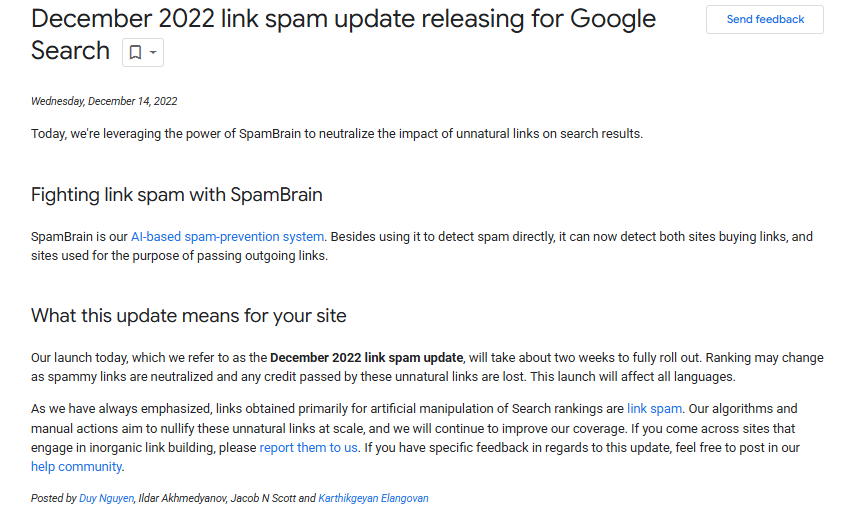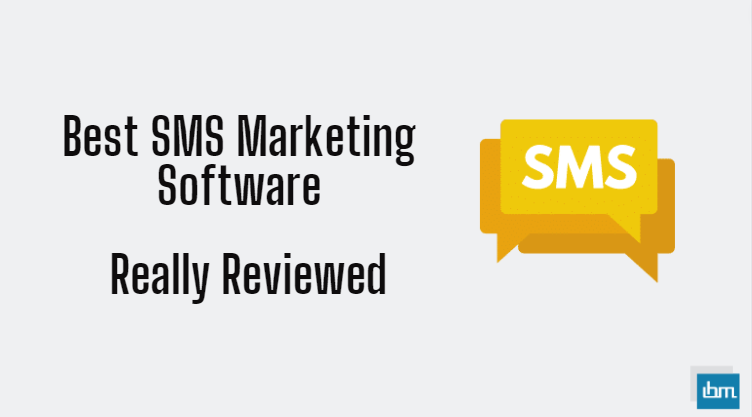Reviewed by: Jayprakash Prajapati | Last updated on November, 14, 2025
Search engine optimization (SEO) has always been a moving target, but 2025 has brought a series of Google algorithm updates that are fundamentally reshaping how content is discovered, ranked, and displayed. With AI becoming a core component of search and user behavior constantly evolving, Google’s updates this year go beyond technical tweaks they represent a shift toward a smarter, context-aware search engine that prioritizes user experience, trust, and real-world relevance.
For digital marketers, bloggers, eCommerce businesses, and content creators, understanding these updates is not optional it’s a survival strategy.
In this guide, you’ll find a detailed, human-readable explanation of the latest Google algorithm updates in 2025, what they mean for your website, and most importantly, how to adapt.
What is Latest Google Algorithm Updates?
The latest Google algorithm updates in 2025 focus on improving search relevance, user experience, and content trustworthiness. Key changes include AI-powered Search Generative Experience (SGE), enhanced EEAT signals, mobile-first indexing, and spam detection via SpamBrain 5.0. Google now prioritizes humanized, experience-based content and penalizes low-quality or AI-spun articles. These updates aim to ensure users receive accurate, helpful, and engaging information directly aligned with their search intent.
1. Google’s Gemini Core Update – January 2025
Kicking off the year with a bang, Google rolled out its Gemini Core Update in January 2025. This update focused on contextual relevance, real-time intent prediction, and user trust signals.
Key Highlights:
- Search context awareness improved significantly, with Google now understanding the intent behind searches more deeply.
- AI-generated content is no longer penalized by default but is scrutinized for accuracy, originality, and human value.
- Websites demonstrating subject matter authority saw major improvements in rankings.
What It Means for SEOs:
This update rewards long-form, intent-matching content that speaks directly to user queries. Thin content even if keyword-rich no longer performs well.
Tip: Use schema markup, FAQs, and clearly structured H2s/H3s to help Google understand your content’s depth and relevance.
2. Search Generative Experience (SGE) Update – March 2025
Google’s Search Generative Experience (SGE) has gone mainstream, especially on mobile. The March update expanded AI snapshot results and scroll-to-learn experiences, where users interact with a blended feed of summaries, videos, articles, and forums without needing to click.
Key Highlights:
- Content from forums like Reddit, Quora, and niche communities is featured alongside websites.
- AI-generated snapshots pull data from top-ranking sources to answer queries directly in SERPs.
- Featured snippets have evolved into multi-source Knowledge Panels.
What It Means for SEOs:
Ranking #1 isn’t enough anymore. You need to be part of Google’s AI-generated answers.
Tip: Use structured data, bullet points, and concise definitions early in your content to increase your chances of being cited in AI summaries.
3. EEAT Scoring Model Revamp – May 2025
Google’s E-E-A-T (Experience, Expertise, Authoritativeness, Trustworthiness) has long influenced rankings. But in May 2025, a major change was introduced: Real-time EEAT scoring driven by user feedback, click behavior, and content consistency.
Key Highlights:
- Author bios, transparent editorial practices, and on-page trust signals now directly impact visibility.
- First-hand experience (especially in reviews, tutorials, or product comparisons) carries more weight than generic writing.
- Sites that use real names, social validation, and consistent publishing patterns are rewarded.
What It Means for SEOs:
You can no longer fake authority. Google wants proof of authenticity.
Tip: Publish under real experts, embed social profiles, and use personal storytelling or real-case examples to boost EEAT.
4. SpamBrain 5.0 – June 2025 Anti-Spam Update.

With the explosion of AI content in 2024, Google’s June 2025 update introduces SpamBrain 5.0 a powerful AI model trained to detect automated, templated, or keyword-stuffed content.
Key Highlights:
- Link spam, doorway pages, and keyword spinning are now detected with higher precision.
- Syndicated AI content with minimal edits is heavily downgraded.
- Sites involved in black-hat link networks faced mass deindexing.
What It Means for SEOs:
The days of cutting corners are gone. Google’s spam filters are now proactive and AI-driven.
Tip: Audit your backlinks, remove thin pages, and focus on publishing content written for humans, not crawlers.
5. Mobile UX-Centric Ranking Signals – August 2025 Update
Google’s August update heavily shifted weight toward mobile-first experience, especially after noticing that over 80% of searches in India and Southeast Asia come from smartphones.
Key Highlights:
- Websites are now ranked based on load speed, layout stability, and interactive elements on mobile.
- Pop-ups, sticky headers, and intrusive ads on mobile are penalized more aggressively.
- Sites with voice search compatibility and fast tap navigation perform better.
What It Means for SEOs:
A responsive theme is not enough. Mobile performance is now your primary SEO battlefield.
Tip: Use Google PageSpeed Insights and Core Web Vitals to optimize for FID, CLS, and LCP metrics on mobile.
6. Google Perspectives Boost – October 2025 Update
One of the most exciting updates of 2025 was the Perspectives boost in October. Google now promotes diverse opinions, personal experiences, and community insights for queries with subjective answers.
Key Highlights:
- Blogs, vlogs, and real-life stories are prioritized for searches like “best laptop for coding in India” or “how it feels to quit a corporate job”.
- The Perspectives tab in Google Search showcases human voices from forums, YouTube, Instagram, and independent blogs.
- Articles that sound generic or affiliate-heavy are demoted in these results.
What It Means for SEOs:
Human voice matters more than ever. Authentic storytelling is not only a brand builder but an SEO tool.
Tip: Add personal anecdotes, contributor opinions, or interviews within your content. Avoid sounding robotic or overly commercial.
7. Algorithmic Relevance Score (ARS) Transparency – December 2025
In a surprising move, Google introduced partial visibility into its Algorithmic Relevance Score (ARS) in Google Search Console. This score evaluates how well your page answers a user’s intent based on engagement, readability, and relevance.
Key Highlights:
- Pages receive a score from 1 to 100 for their query alignment.
- Low ARS pages may still be indexed, but rarely rank high.
- Bounce rate, time on page, and scroll depth are now part of this calculation.
What It Means for SEOs:
Focus on content depth, engagement hooks, and internal linking to improve your ARS.
Tip: Use tools like Hotjar to analyze user behavior and optimize weak sections of your content.
How to Future-Proof Your SEO Strategy in 2025
With the algorithm becoming smarter, your SEO strategy should evolve accordingly. Here are actionable steps to ensure you’re not left behind:
- Write for intent, not just keywords – Understand why a user searches, and structure your content accordingly.
- Use AI as a helper, not a crutch – Enhance drafts, but humanize your content before publishing.
- Diversify content types – Mix text, videos, carousels, podcasts, and visual stories to meet modern search demands.
- Prioritize topical authority – Don’t just write about isolated keywords. Build clusters of content that demonstrate deep knowledge.
- Focus on trust – Include privacy policies, contact info, real authorship, and verifiable facts.
Difference Between Humanized Content and AI-Generated Content?
| Aspect | Humanized Content | AI-Generated Content |
|---|---|---|
| Tone | Natural, conversational, emotionally engaging | Often robotic, formal, or repetitive |
| Experience | Based on real-life examples, personal insights | Usually lacks personal experience |
| Depth & Context | Deep understanding with cultural or emotional context | May miss deeper context or nuance |
| Trustworthiness | Builds user trust, feels authentic | Can seem generic or overly polished |
| Engagement | Keeps reader interested with storytelling and human emotion | May feel dry or mechanical |
| SEO Performance | Better long-term engagement and trust-based ranking | Short-term use, but may be penalized if overused |
| Originality | Unique voice, thoughts, and perspectives | May repeat known patterns or information |
| Best Use Case | Blogs, reviews, guides, storytelling | Drafting outlines, product descriptions, data summaries |
Final Thoughts.
Google’s 2025 algorithm updates have made one thing very clear: SEO is no longer about shortcuts or keyword stuffing. It’s about delivering genuine value, backed by experience, trust, and user-first content. Search engines are getting smarter, thanks to AI and deeper understanding of human intent. This means that ranking today depends more on how helpful, trustworthy, and engaging your content truly is.
To succeed in 2025 and beyond, focus on real expertise, authentic voices, and actionable insights. Write content that solves problems, reflects real-world experiences, and encourages user interaction. Whether you’re a blogger, a marketer, or a business owner, your SEO strategy should now be centered around earning your visibility, not manipulating it.
Build topical authority, enhance user experience especially on mobile and stay updated with Google’s evolving ranking signals. Remember, Google’s goal is to connect users with the most useful content. Make sure your site deserves to be part of that connection.





